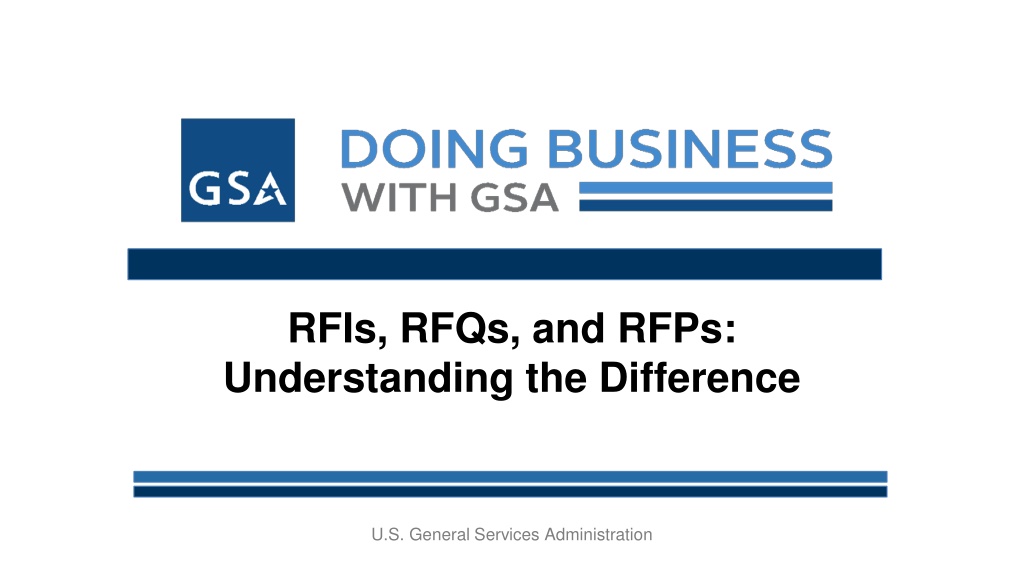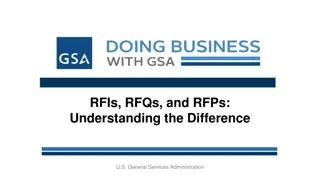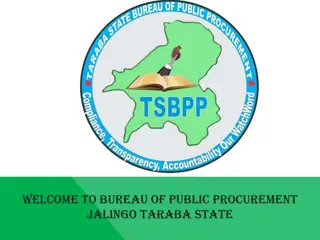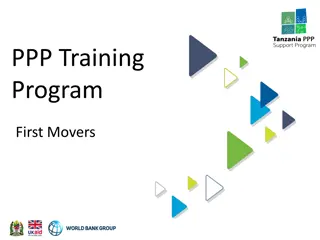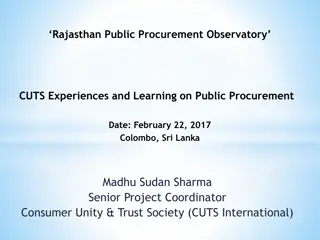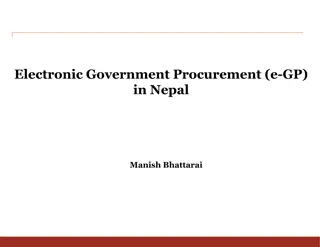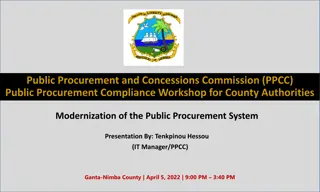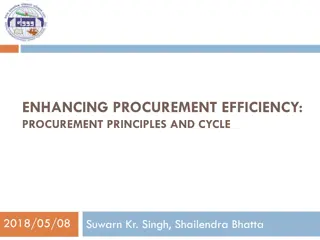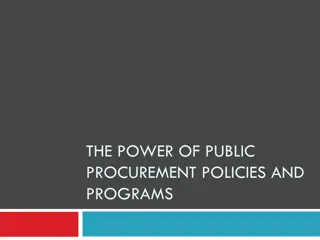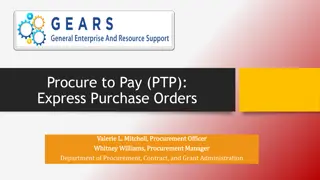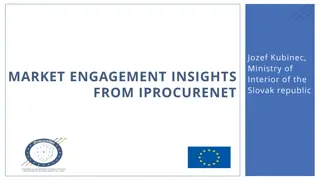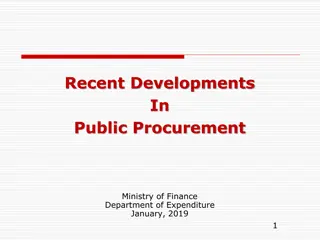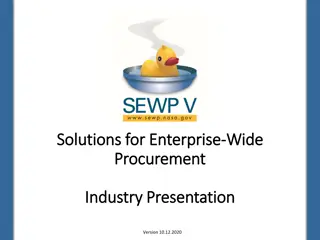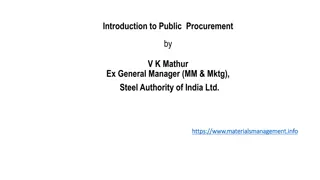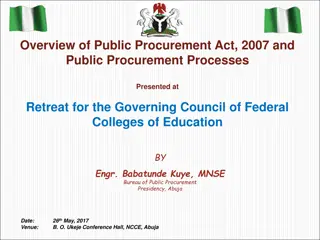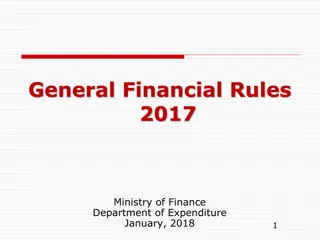Understanding RFIs, RFQs, and RFPs in Government Procurement
Learn the distinctions between Requests for Information (RFIs), Requests for Quotes (RFQs), and Requests for Proposals (RFPs) in the U.S. General Services Administration. Understand the key differences, their core purposes, definitions, and where they fit in the acquisition process. Gain insights on how to respond effectively to RFIs and what to expect in the process, including example scenarios and common mistakes to avoid.
Download Presentation

Please find below an Image/Link to download the presentation.
The content on the website is provided AS IS for your information and personal use only. It may not be sold, licensed, or shared on other websites without obtaining consent from the author. Download presentation by click this link. If you encounter any issues during the download, it is possible that the publisher has removed the file from their server.
E N D
Presentation Transcript
RFIs, RFQs, and RFPs: Understanding the Difference U.S. General Services Administration
Todays Agenda The power of responding to Requests for Information (RFI)/Sources Sought Notices (SSN) Differences between Requests for Quotes (RFQ) and Requests for Proposals (RFP) Tips on creating more effective responses Common mistakes to avoid Insights from federal contracting officers
Core Purpose: RFI/ SSN Finding the Right Supplier RFQ RFP
Definitions Request for Information (RFI) / Sources Sought Notice (SSN): A market research tool used to obtain price, delivery, capabilities, interest, etc. for planning purposes Request for Quote (RFQ): A solicitation method used to obtain price, cost, delivery, and related information from suppliers Request for Proposal (RFP): A solicitation method which communicates the Government s requirements and requests proposals
Where are we in the Acquisition Process? Evaluations Award Planning RFI SSN Solicitation RFQ RFP Administration
Key Differences Why Where RFI/SSN Request for Information Sources Sought Notice Solicit industry input: Government s: Requirement Strategy Industry s: Capability Interest FAR subpart 8.4 FAR part 12 FAR parts 13, 15 FAR 16.505 GSA Schedules Commercial Items Open Market (GSA OASIS, Alliant) RFP Request for Proposal Communicate Requirement & Solicit Proposals FAR part 12 FAR parts 13, 15 FAR 16.505 Commercial Items Open Market (GSA OASIS, Alliant) RFQ Request for Quote Obtain: Price Cost Delivery Related Information FAR subpart 8.4 FAR part 13 GSA Schedules Open Market (Below the SAT)
What to Expect How Should I Respond? What is in an RFI? Follow the format specified in the RFI Interest Will you submit an offer? Business Size & Primary NAICS Relative Experience Subcontractor Involvement Conflicts of Interest No standard format Shorter response times Overview of the Government s Requirement Questions for Industry
RFI Tips Dos: Timely Complete Focus on the Requirement Specific-Agencies, Contract Numbers, Figures, Dates, Tasks, Roles, etc. Don ts: Underestimate the importance of your response Make Assumptions
Question How does the Government use the information submitted through an RFI response?
RFPs - What to Expect In accordance with FAR 15.203, at a minimum: The Government s Requirement Terms & Conditions Instructions (Information required to be in the proposal) Evaluation Criteria: Factors Relative importance
RFQs - What to Expect In accordance with FAR 8.405-2 (c), at a minimum: Statement of Work (SOW) or Performance Work Statement (PWS) Evaluation Criteria Quotes do not establish a binding contract agreement with the Government. The contract is established when the contractor accepts the Government s subsequent offer to work by Signing the quote, or Performance/Delivery
RFQ & RFP Tips Do: Read, read, read! (instructions to offerors, PWS/SOW, evaluation criteria) Ask Questions Self-evaluate Be detailed, specific, and responsive (timeliness, no exceptions to the solicitation, ensure all instructions are followed)
RFQ & RFP-Tips Don t: Low bid Grammar mistakes Restate the requirement Make assumptions
eBuy Interested Feature Sellers can notify buyers that they are interested in an RFI/RFQ before submitting a response. Seller s My Quotes page will display all interested action.
Questions How can I ensure my quote/proposal is responsive? How does the government evaluate my quote/proposal?
MAS Resources for Assistance www.gsa.gov/schedule Email: MASPMO@GSA.GOV
Survey Your feedback is valuable to us. Please take a moment to share your thoughts by completing a brief survey. Your input helps us improve and tailor our future sessions. Thank you in advance for your time! SURVEY LINK: https://feedback.gsa.gov/jfe/form/SV_brpMFrSqqruHOku Privacy Act Statement
